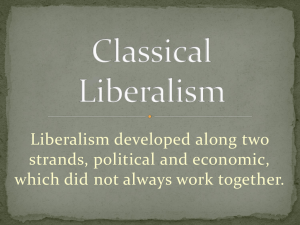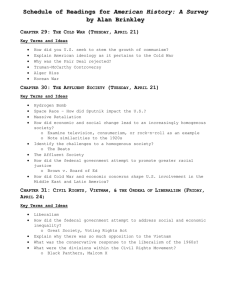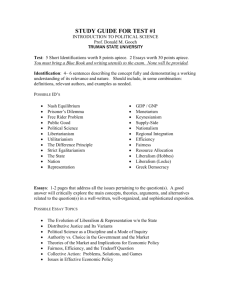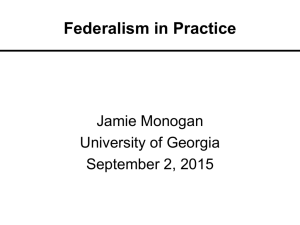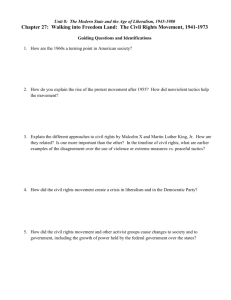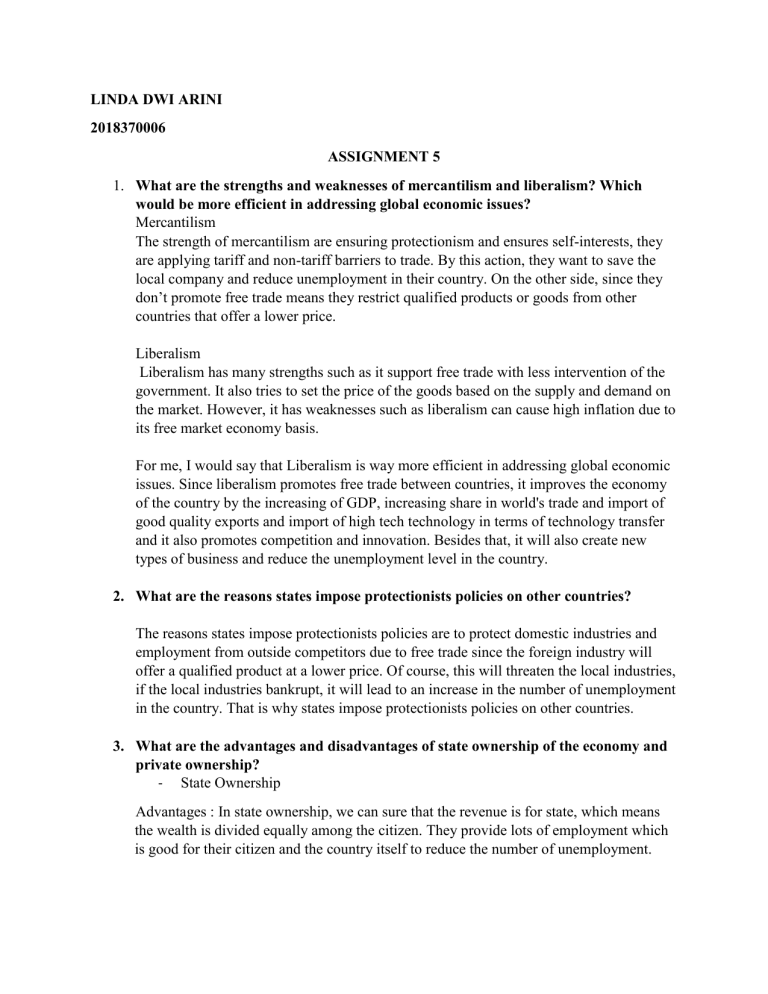
LINDA DWI ARINI 2018370006 ASSIGNMENT 5 1. What are the strengths and weaknesses of mercantilism and liberalism? Which would be more efficient in addressing global economic issues? Mercantilism The strength of mercantilism are ensuring protectionism and ensures self-interests, they are applying tariff and non-tariff barriers to trade. By this action, they want to save the local company and reduce unemployment in their country. On the other side, since they don’t promote free trade means they restrict qualified products or goods from other countries that offer a lower price. Liberalism Liberalism has many strengths such as it support free trade with less intervention of the government. It also tries to set the price of the goods based on the supply and demand on the market. However, it has weaknesses such as liberalism can cause high inflation due to its free market economy basis. For me, I would say that Liberalism is way more efficient in addressing global economic issues. Since liberalism promotes free trade between countries, it improves the economy of the country by the increasing of GDP, increasing share in world's trade and import of good quality exports and import of high tech technology in terms of technology transfer and it also promotes competition and innovation. Besides that, it will also create new types of business and reduce the unemployment level in the country. 2. What are the reasons states impose protectionists policies on other countries? The reasons states impose protectionists policies are to protect domestic industries and employment from outside competitors due to free trade since the foreign industry will offer a qualified product at a lower price. Of course, this will threaten the local industries, if the local industries bankrupt, it will lead to an increase in the number of unemployment in the country. That is why states impose protectionists policies on other countries. 3. What are the advantages and disadvantages of state ownership of the economy and private ownership? - State Ownership Advantages : In state ownership, we can sure that the revenue is for state, which means the wealth is divided equally among the citizen. They provide lots of employment which is good for their citizen and the country itself to reduce the number of unemployment. Disadvantages : They restrict free trade to minimize the competitors. Some state businesses suffer large losses, some are in a monopoly situation. Private companies will not grow and due to this competition will not get increased and demand for labour forces will also get limited. - Private Ownership Advantages : because there is competition with other private company, they will try to dominate market by offering product or services with a good quality at a low price. There will be more work force needed which means reduce the number of unemployment. Overall they will increase the standard of living of people and overall an economy grows. Disadvantages : Since the owner of the company is private, they usually only think about how they will get high profit without considering the welfare of the people surround them. 4. How important is a stable international monetary system to cooperation among countries trade relations? Why would this be considered a collective good? A stable international monetary system is very important since it is related to international financial crises, high fluctuations in exchange rates and weakening of currency of countries, especially of big economies. For example Rupiah is weaken against US dollar, it can effect export import activities between those two countries even it can effect global economy activies like the demand of a product. It also will harm exchange rates. Therefore, maintaining the stability of international monetary system is important. This is considered as collective good because because if any country's economy faces economic issues, especially if any big country's economy faces issues then it can have its effect internatinally/globally. 5. What are the factors that multinational corporations consider when making foreign direct investments? - Rules and regulation on the intended country about the foreign investment trade policy and privatization policy high national economic growth rates exchange rate stability general macroeconomic stability interest rates Tax rates applicable to foreign investors. wage rate and cost of materials required. Availability of skilled labor related to area of operations. infrastructure and transportation facilities available in the country. political stability and trade policy.
